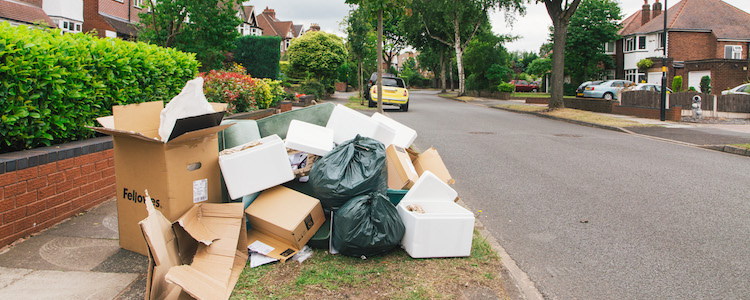In a world characterised by convenience, people often forget about the less glamorous byproducts of modern life, one of which is rubbish. Most do not think twice about it until it piles up or starts to smell. Have you ever thought about what could happen if you do not dispose of your rubbish regularly? According to reports by the World Health Organization, poorly managed waste contributes to the spread of diseases and environmental pollution globally. Let us take a plunge into the world of waste management and dive deep into understanding the health risks associated with delayed rubbish removal.
The Importance of Regular Rubbish Disposal
Regular garbage disposal, or timely rubbish removal, is not just aesthetic; it actually plays a crucial role in maintaining public health. By neglecting this responsibility, you could inadvertently contribute to the rise of certain health issues in your household or wider community. It fosters the growth of harmful bacteria and pathogens, attracts vermin, and produces pollutants that contaminate air, soil, and water sources.
Risks From Biological Wastes
Biological wastes like food and human waste can become breeding grounds for microorganisms upon decomposition if not properly handled. Harmful bacteria may propagate rapidly, leading to diseases such as salmonellosis or cholera that could be harmful to you and those around you.
Illnesses Associated with Pests
Trash attracts pests like insects and rodents which carry various pathogens responsible for diseases. These pests serve as vectors for numerous illnesses such as Lyme Disease, leptospirosis, and plague that might inflict serious health problems on exposed individuals.
Pollution and Asthma
Persistently piled-up garbage degrades over time and emits harmful volatile substances into the environment. Certain components like old furniture or electronic waste release harmful volatile organic compounds, leading to air pollution that could induce respiratory disorders including asthma and chronic obstructive pulmonary disease.
Gastrointestinal Infections
Poor sanitation and delayed garbage disposal can increase the risk of gastrointestinal infections. Organisms like E.Coli and Salmonella thrive in such conditions, causing diseases such as gastroenteritis and dysentery. Maintain a clean environment to avoid unnecessary exposure to these pathogenic agents.
Allergic Reactions
Moulds thrive on wet organic waste. If left unattended, the spores spread into your home and could induce allergic reactions such as wheezing, itchy eyes, or skin rashes. Ensuring your rubbish is promptly removed helps prevent conditions caused by mould spore inhalation.
Skin Disorders
Tissues, disposable diapers, or used bandages in the trash may contain pathogens causing skin disorders. Prolonged exposure to such wastes can lead to infections causing skin issues like dermatitis or impetigo.
Impact on Mental Health
The mental health impacts of waste mismanagement should not be underestimated either. Chronic exposure to disarray and smell caused by accumulated rubbish has been linked with increased stress levels and depression, making it essential to remove garbage regularly for mental wellness in addition to physical health.
Eyes and Nose Irritation
It is usual for rubbish to emit unpleasant odours over time as it degrades. Apart from the discomfort, it may also cause irritation in your nose, eyes, and throat due to the chemicals released during decomposition. Prompt removal helps avoid these adverse health effects.
Rising Dangers with E-Waste
Modern life has given rise to a new form of waste—e-waste—that poses unique health and environmental concerns if not promptly and properly disposed of. E-waste components can leach hazardous substances such as lead and mercury, causing lead poisoning or potential harm to the nervous system.
The Global Health Burden
Reportedly, improperly managed solid waste contributes significantly to the global health burden. By taking responsibility for regular rubbish removal, not only do you safeguard your well-being, but also contribute to this worldwide effort.
Community Implications
On a larger scale, delayed rubbish removal impacts the entire community. From the spread of diseases, pests, to devalued property rates, these are concerns that necessitate concerted efforts for proper waste management practices.
Preventive Measures
The prevention of such health risks lies in correcting bad habits. Embrace responsible lifestyle choices starting with planned consumption, segregation at home, use of sanitary landfills, recycling or composting. Adopting these practices goes a long way in maintaining a clean and healthy environment for you and subsequent generations.
Final Thoughts
In essence, understanding the health risks associated with delaying rubbish disposal highlights the importance of taking action now. So take a moment to think about your waste disposal habits. With changes on an individual’s level compounded across households globally, we could bring forth an immense positive impact on global health and environment. Always remember, it is your health and community at stake when it comes to delayed rubbish clearance.




